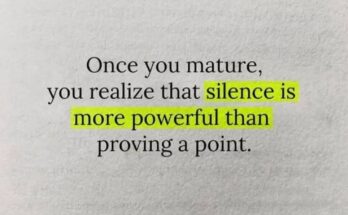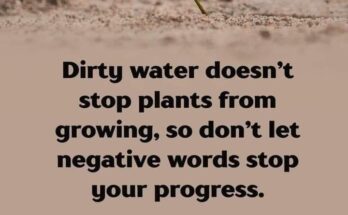My father was never a man of many words. He had a quiet presence, like a lighthouse standing firm through storms. Growing up, I used to wonder what he thought about during his long silences at the dinner table or while sitting on the porch staring at the setting sun. I understand now, years later, that much of what he didn’t say was out of love—a love too deep for casual words, expressed instead through hard work, self-denial, and quiet sacrifice.
I was seventeen when he first said it.
“Here, son, I saved all this money for your future.”
He handed me an old, worn-out envelope, thick with savings bonds, bank receipts, and a check with my name on it. My first instinct was disbelief. Then came the tears.
Chapter One: Humble Beginnings
My father was a janitor at a local school. It wasn’t a glamorous job, but it was honest. He left home every morning before the sun was up and came back with aching feet and a tired back. But he never once complained. Not even when it rained, or snowed, or when he had to clean up after careless students.
We lived in a small, two-bedroom house on the outskirts of town. The roof leaked during heavy storms, the walls were thin, and the heater coughed and wheezed every winter. But to me, it was home. Warm meals were always on the table, the lights stayed on, and my father always managed to fix the leaky roof, one patch at a time.
He never bought himself anything new. His shoes were always a little too worn, his shirts faded, and his wallet as old as I could remember. Yet, somehow, I had everything I needed.
Chapter Two: Silent Sacrifices
It wasn’t until I got older that I started to notice things.
He’d skip lunch to save money, packing only an apple and some crackers.
He never came on school trips, saying he had work, though I later found out he couldn’t afford the ticket.
He didn’t turn on the air conditioner, even in the scorching heat, just so the electricity bill wouldn’t spike.
I once asked him why he didn’t treat himself, why he lived so frugally. He gave me a faint smile and said, “Some things are more important than comfort. I’m planting trees I’ll never sit under.”
I didn’t understand then. I do now.
Chapter Three: Lessons Beyond Words
My father never sat me down for big lectures. Instead, he taught by example.
He taught me that dignity doesn’t come from the kind of job you have, but from how you do it.
He showed me that saving isn’t just about money—it’s about vision. It’s about believing in a future that’s better than the present.
And most of all, he taught me that love isn’t loud. Sometimes, it’s silent. It wakes up at 4 AM. It eats leftovers. It wears the same coat for 10 winters.
When I turned sixteen, I got my first job at a local diner. I was proud to be making my own money. But I didn’t know my father was quietly matching every dollar I saved, putting it into a separate account under my name.
Chapter Four: The Envelope
It was a Sunday morning, one of those rare days when he didn’t have work. He brewed some tea, called me over, and sat down across from me at the table.
He looked older than I remembered. His hands, rough and cracked, trembled slightly as he reached into his coat pocket and pulled out a thick envelope.
He slid it across the table. “Here, son,” he said. “I saved all this money for your future.”
I stared at it, confused. I opened it slowly. Inside was a collection of bank records, savings bonds, a cashier’s check, and even a hand-written ledger documenting every deposit he’d made over the years.
“Dad… this is…” I couldn’t find the words.
He just smiled. “You’re going to college. You’ll live a better life. That’s all I ever wanted.”
Chapter Five: The Weight of Love
I realized, at that moment, just how much he had given up so I could dream.
Every dollar in that envelope was a movie he didn’t see, a meal he didn’t eat, a jacket he didn’t buy. And yet, there it was—evidence of a lifetime of love, accumulated not in hugs or kisses, but in every tiny decision he made to put me first.
He had lived not for himself, but for me.
That kind of love is hard to comprehend.
Chapter Six: Paying It Forward
Thanks to my father, I was able to go to college without debt. I studied finance—not because I wanted to get rich, but because I wanted to understand money the way he had. I wanted to build something with it, not just for myself, but for others.
I graduated, got a decent job, and over the years, I started saving too—not just for emergencies or vacations, but for a future child of my own.
And one day, years later, when my own son was turning eighteen, I sat him down, pulled out an envelope, and said the same words:
“Here, son, I saved all this money for your future.”
He looked at me the same way I looked at my father. A mixture of confusion, gratitude, and overwhelming emotion.
Chapter Seven: Legacy
My father passed away not long after I graduated. I held his hand in the hospital room, whispered “thank you” again and again, though I wasn’t sure he could hear me. But I think he knew.
I spoke at his funeral. It was a small crowd—mostly neighbors, a few old coworkers, and some students he used to clean up after. I told them his story. How a janitor had sent his son to college. How a man with a high school diploma had funded a university education.
How a quiet, humble father had changed the trajectory of an entire family.
People cried. Not just for the man who had died, but for the lives he touched without anyone realizing.
Chapter Eight: A New Generation
Now, as I watch my son navigate his own life, I see pieces of my father in him—his stubbornness, his resilience, his quiet strength. I’ve told him the story many times. He knows his grandfather not as just a janitor, but as a hero. A silent provider. A man who built the foundation we all now stand on.
Money comes and goes, but legacy endures. And a father’s love, invested daily in small, invisible ways, becomes the greatest inheritance a child can receive.
Final Thoughts
We live in a world that often celebrates loud success—fame, fortune, and flashy lifestyles. But sometimes, the greatest victories happen in silence. In dark mornings, in skipped luxuries, in quiet sacrifices made with no expectation of return.
“Here, son, I saved all this money for your future,” isn’t just about dollars. It’s a love letter written over time. A testament to patience, discipline, and a heart that beats for someone else.
My father may have worn the same shoes for years, but he walked me into a better life. And for that, I will always be grateful.


